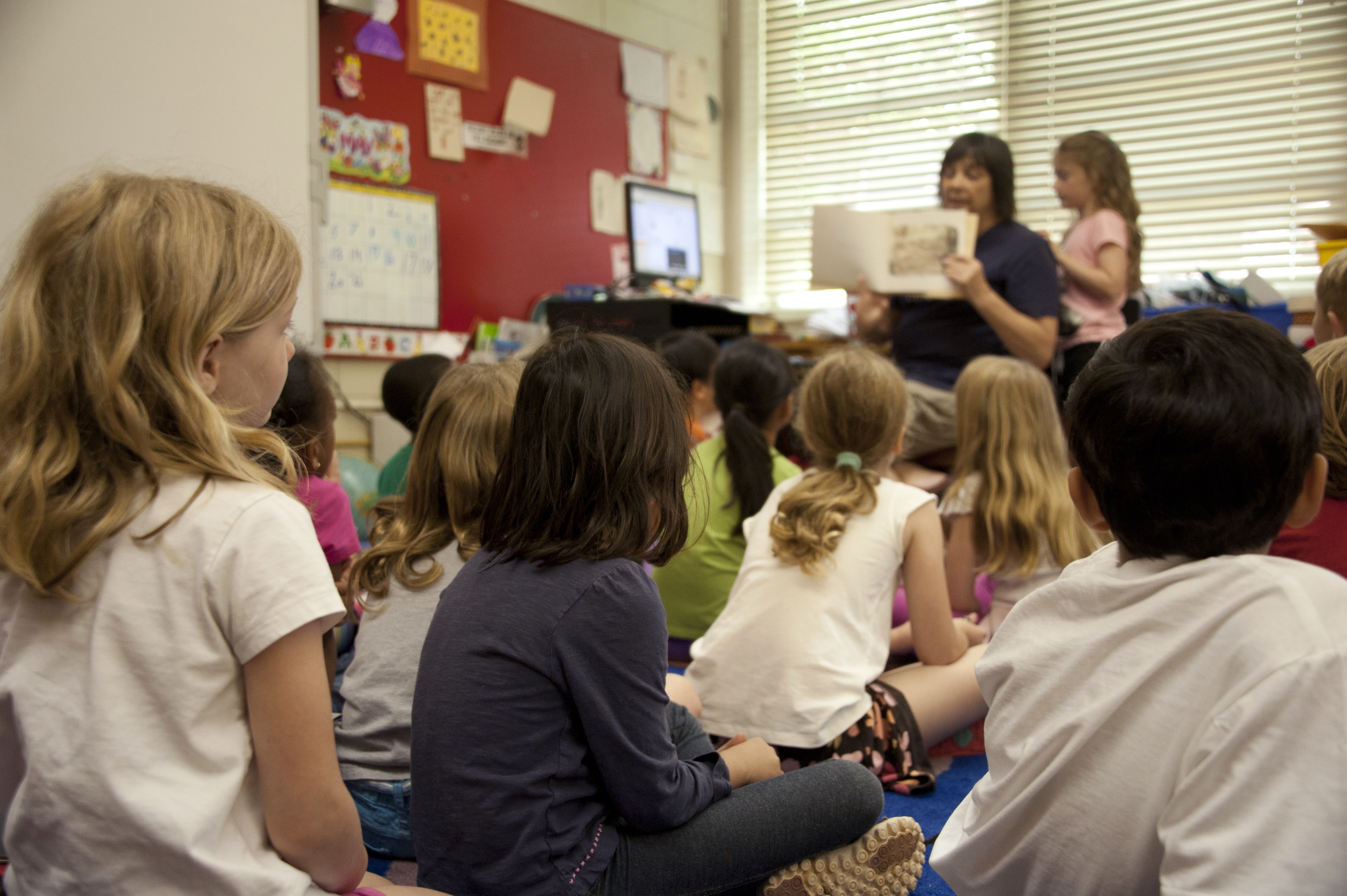Introduction to Sociology
Tổng quan các chủ đề
-
Module 3: Socialization
 Introduction
Introduction

These students aren’t just learning to read and write; they are being socialized to norms like keeping their hands to themselves, standing in line, and reciting the Pledge of Allegiance. (Photo courtesy of @cdc/upsplash)Socialization is the lifelong process by which we develop our sense of self. Psychological theories of self-development have been broadened by sociologists who explicitly study the role of society and social interaction in self-development. Influenced by our close ties and cultures; it is also a key part of individual development. Research demonstrates that who we are is affected by both nature (our genetic and hormonal makeup) and nurture (the social environment in which we are raised). Sociology is most concerned with the way that society’s influence affects our behavior patterns, made clear by the way behavior varies across class and gender.
Our direct interactions with social groups, like families and peers, teach us how others expect us to behave. Likewise, a society’s formal and informal institutions socialize its population. Schools, workplaces, and the media communicate and reinforce cultural norms and values. Socialization reoccurs as we enter new phases of life, such as adulthood or senior age.
 Module Objectives
Module Objectives
At the end of this module, students will be able to:
- Understand the difference between psychological and sociological theories of self-development (CO 2, 5)
- Explain the process of moral development (CO 3)
- Understand the importance of socialization both for individuals and society(CO 3, 4)
- Explain in the nature versus nurture debate (CO 2, 4)
- Understand how we are socialized through families, peer groups, and formal institutions like schools, workplaces, and the government. (CO 4, 5)
Module Activities
Below is an outline of the items for which you will be responsible throughout the module.
 READ
READDUE: Early in the module
Read the following early in the week to help you respond to the discussion questions and to complete your assignment(s).
Introduction
1. Read the introduction above and watch the videos. (MO 1)
Required Textbook Readings
- Chapter 3 in our textbook. – (MO 1 ,2 ,3 , 4, 5)
 DISCUSS
DISCUSSRespond to the discussion prompts and questions by the due dates outlined in the assignment. You should contribute your first post no later than Day XX. Then, follow up on the posts of your classmates and faculty and respond to your own posts by Day XX.
- Module 3 Discussion– (MO 1, 3, 4, 5) DUE: Post Day X, Replies Day - XX
 SUBMIT
SUBMITSubmit your completed assignment by Day XX of this module. For detailed instructions on completing each assignment, see the associated course page.
- Module 3 Assignment. - (MO 2, 3, 5) DUE: Day XX
- Module 3 Quiz - (MO 1, 2, 3, 4, 5) DUE: Day XX
Note the checkboxes to the right that help you track your progress: some are automatic, and some are manual.
Module Pressbooks Resources and Activities
You will find the following resources and activities in this module on the Pressbooks website. Click on the links below to access or complete each item.